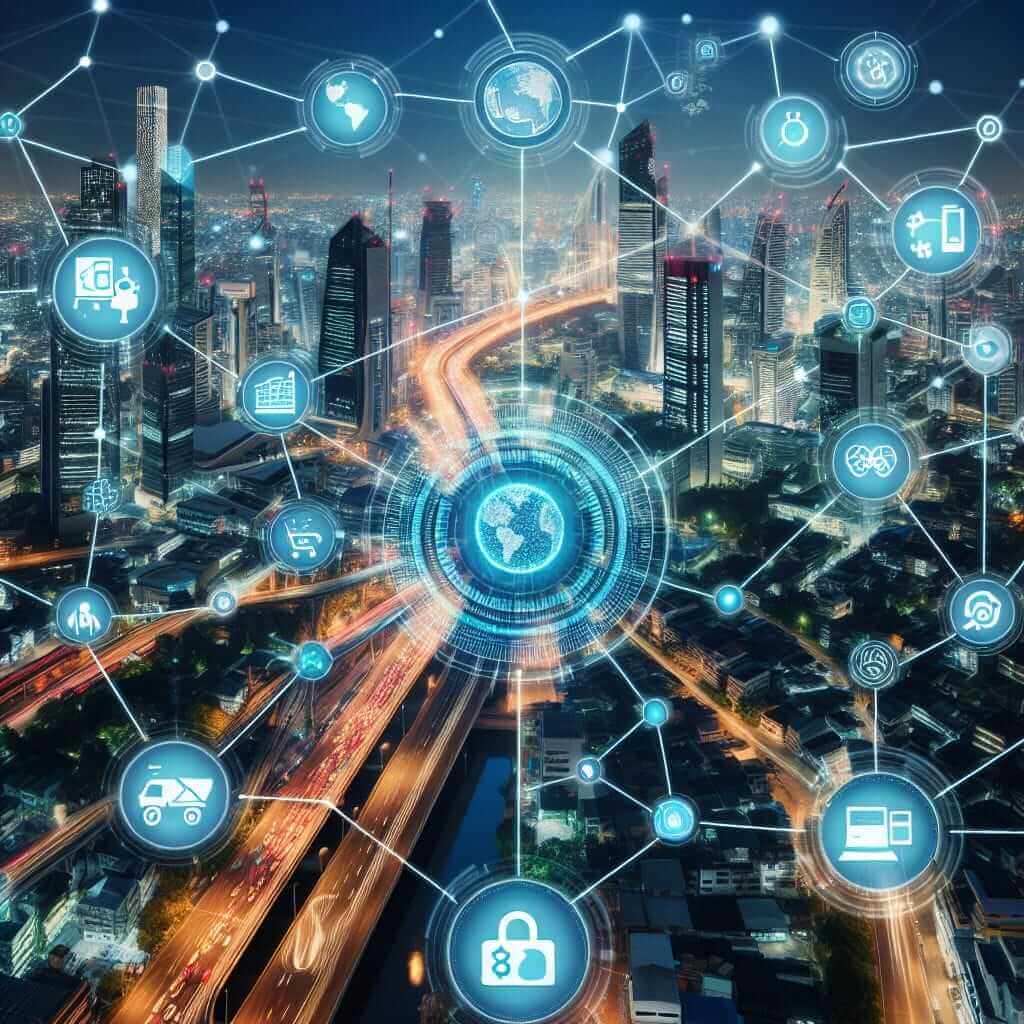The Reading section of the IELTS test can be a challenging part for many candidates. It requires you to comprehend and analyze texts on various subjects. One of the trending topics that might make an appearance is “Blockchain Technology in International Development.” This topic is quite current, considering the growing impact of blockchain across different sectors globally.
In this article, we will explore the application of blockchain technology in international development. We’ll provide an IELTS Reading practice text, questions, answers, and further insights into vocabulary and grammar related to the topic. This will help you prepare effectively for the IELTS Reading test.
Practice Reading Passage
Blockchain in International Development
Blockchain technology, originally devised for the digital currency Bitcoin, is now being utilized for various applications across different fields. Its unique attributes of transparency, security, and decentralization make it highly suitable for international development projects.

One significant application of blockchain in international development is in enhancing financial inclusivity. In many developing countries, a large proportion of the population lacks access to traditional banking services. Blockchain provides a solution through decentralized finance (DeFi), enabling peer-to-peer transactions without requiring an intermediary. This has the potential to provide financial services to the unbanked and underbanked populations, facilitating microloans, remittances, and digital asset management.
Furthermore, blockchain is being used to improve the efficiency and transparency of supply chains. In regions where supply chains are complex and non-transparent, blockchain helps in tracking products from their origin to the end consumer. This is particularly beneficial in agriculture and food supply chains, ensuring fair trade practices and reducing fraud.
Another area where blockchain is making an impact is in identity verification. Many individuals in developing countries lack proper identity documentation, which is crucial for accessing various services. Blockchain-based identity solutions offer a secure and immutable record of identity, overcoming the limitations of traditional identification systems. This not only empowers individuals but also helps governments to better manage resources and services.
Additionally, blockchain technology is being leveraged to improve the transparency and accountability of government aid and charitable donations. By using blockchain to track the flow of funds and ensure that they reach the intended recipients, it reduces the risk of corruption and mismanagement. This helps in restoring trust among donors and recipients alike.
In the healthcare sector, blockchain is used to preserve the integrity of medical data. It allows for a secure and tamper-proof system for storing health records, which can be crucial in times of crisis, such as during pandemics. This ensures that healthcare providers have access to accurate patient data, improving treatment outcomes.
Practice Questions
Multiple Choice Questions
-
According to the passage, what is one way blockchain technology is used in international development?
- A. Increasing cryptocurrency investment
- B. Enhancing financial inclusivity
- C. Decreasing internet usage
- D. Facilitating traditional banking
-
How does blockchain improve supply chains in developing regions?
- A. By creating new markets
- B. By tracking products from origin to consumer
- C. By promoting online shopping
- D. By establishing new shipping routes
Identifying Information (True/False/Not Given)
-
Blockchain technology is primarily designed for centralized financial systems.
- True
- False
- Not Given
-
Utilization of blockchain in healthcare ensures more reliable patient data during pandemics.
- True
- False
- Not Given
Matching Headings
- Match the following headings to the correct paragraphs (A-D):
- A. Enhancing Financial Inclusivity
- B. Transparent Supply Chains
- C. Secure Identity Verification
- D. Accountability in Government Aid
Short-answer Questions
- What technology does blockchain provide a solution for enabling peer-to-peer transactions?
- How does blockchain technology help in reducing fraud in supply chains?
Answer Key
- B
- B
- False
- True
- A-2, B-3, C-4, D-5
- Decentralized Finance (DeFi)
- By tracking products from their origin to the end consumer
Common Mistakes and Tips for Improvement
- Misinterpreting Information: Make sure to read the questions carefully and identify keywords. Revisit the text to find specific information rather than relying on memory.
- Not Answering All Questions: Even if unsure, attempt all questions. Practicing different types of questions will help improve your skills.
- Vocabulary Constraints: Improve your vocabulary related to common IELTS topics, this helps in better comprehension of the texts.
Vocabulary
- Decentralized (adj): [ˌdiːˈsɛntrəˌlaɪzd ] – Transfer of control from a central organization to a distributed network.
- Immutable (adj): [ɪˈmjuːtəbl] – Unable to be changed or altered.
- Transparency (noun): [trænˈspɛrənsi] – Openness, clear and accessible information.
Grammar Focus
- Conditional Sentences: “If blockchain technology is utilized…”, “When blockchain is applied…”
- Passive Voice: “Blockchain is being used…”, “Documents are secured by using blockchain…”
Conclusion
Preparation is key to achieving a high score in the IELTS Reading section. Understanding contemporary topics like blockchain technology in international development can greatly enhance your readiness. Further practice using the provided text, questions, and comprehensive answers can sharpen your skills. Remember to build your vocabulary and improve your grammar for better comprehension and to ace your IELTS Reading test.